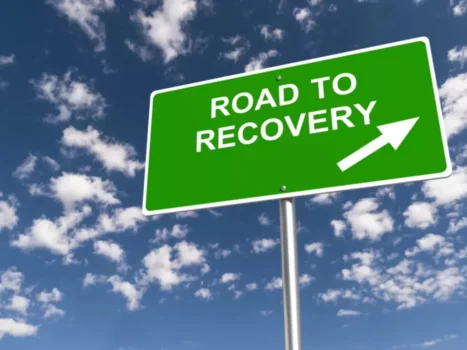Although three studies did not report the method of randomisation (Barden 2013; Buckman 2015; Dai 2002), their reported baseline characteristics were well matched. The remaining seven studies reported the method of randomisation used, hence we classified them as having low risk of bias. It is important to note that information regarding to the method of randomisation used in Foppa 2002 and Rosito 1999 was provided by the study author via email.
What are the risk factors?
- INTERHEART results also suggested that the protective effect of any alcohol use against MI was greater in women and those over age 45.
- High blood pressure can be both a cause and a result of kidney disease.
- If you have congestive heart failure or edema, a diet low in sodium intake can help reduce edema and lower blood pressure.
- Investigators have used a variety of noninvasive tests to evaluate the acute effects of alcohol consumption on myocardial function and hemodynamics in healthy humans.
- Over two billion people drink, with the highest per capita consumption in the European Union (EU).
- It’s important to note that some studies examined only looked at small numbers of females compared to males.
Men are more likely than women to develop high blood pressure throughout middle age. But in older adults, women are more likely than men to develop high blood pressure. High blood pressure is more common in Black adults than in White, Hispanic, or how does alcohol affect blood pressure Asian adults. Compared with other racial or ethnic groups, Black people tend to have higher average blood pressure numbers and get high blood pressure earlier in life. Also, some high blood pressure medicines may not work as well for Black people.
Apostolidou 2015 published data only
The toll that frequent alcohol use can have on your body can be severe but in some cases, the damage can be reversible. These effects can happen even after one drink — and increase with every drink you have, states Dr. Anand. But as you drink more — and you don’t need to drink that much more — eventually, the enzymes that break down the alcohol get saturated. So, the alcohol builds up quite quickly,” explains addiction psychiatrist Akhil Anand, MD. If you don’t know you have hypotension, you should see a healthcare provider if you have repeated dizziness or fainting episodes. This is especially important because those symptoms are possible with many other health conditions, some of which are dangerous.

Bryson 2008 published data only
For example, some people who intake a large amount of alcohol may not show signs of high blood pressure. On the other hand, even people who do not drink can develop high blood pressure for other reasons. In addition to alcohol use, many other factors can cause high blood pressure. It is recommended that there should be at least 10 studies reporting each of the subgroups in question.
- Pancreatitis can be a short-term (acute) condition that clears up in a few days.
- Usual SBP and DBP were 1.25 mm Hg (95% CI, +0.49 to +2.01) and 1.14 mm Hg (95% CI, +0.60 to +1.68) higher, respectively, for a 12 g/day greater daily consumption of alcohol compared with no alcohol consumption.
- The best way of knowing if there’s a problem is to have your blood pressure measured.
- Several reports indicate that alcohol first exerts a seemingly positive effect, followed by a more negative impact (i.e., it is biphasic) on the endothelial−nitric oxide–generating system.
Review Manager (RevMan) [Computer program]

Investigators have used a variety of noninvasive tests to evaluate the acute effects of alcohol consumption on myocardial function and hemodynamics in healthy humans. As with isolated animal heart experiments, some investigators have found that acute alcohol exposure (blood alcohol levels 40 to 110 mg%) depresses myocardial systolic function in humans (Delgado et al. 1975; Lang et al. 1985; Timmis et al. 1975). However, these changes were transient, with small changes from baseline. For example, in one study, the ejection fraction decreased by 4 percent after alcohol consumption (Delgado et al. 1975). Most likely, the decrease in contractility was offset by corresponding decreases in afterload (end-systolic wall stress), systemic vascular resistance, and aortic peak pressure, which maintained cardiac output. We did not consider the lack of blinding of participants as a downgrading factor for certainty of evidence because we do not think that it affected the outcomes of this systematic review.
- Because higher doses of alcohol exert specific pharmacological effects on drinkers, we had a few double‐blind RCTs after the first screening.
- These effects can happen even after one drink — and increase with every drink you have, states Dr. Anand.
Acute administration of alcohol stimulates the release of histamine and endorphin, which interferes with baroreflex sensitivity (Carretta 1988). One area of interest is how the consumption of alcohol impacts blood pressure. However, even drinking small amounts of alcohol may contribute to high blood pressure.
“Some people think of the effects of alcohol as only something to be worried about if you’re living with alcohol use disorder, which was formerly called alcoholism,” Dr. Sengupta says. Tolerance and dependence can both happen as symptoms of alcohol use disorder, a mental health condition previously referred to as alcoholism, that happens when your body becomes dependent on alcohol. This condition can be mild, moderate, or severe, depending on the number of symptoms you have.
Newlin 1990 published data only
- These data highlight how gender may be an important modifier of the alcohol threshold level and can shape the alcohol benefit–risk relationship.
- A 2022 study found that people with severe hypertension who drank 2 or more cups of coffee per day had a higher risk of death from cardiovascular disease.
- Moderate drinkers (7 to 13 drinks per week) are twice as likely than those who don’t drink alcohol to develop hypertension.
- Many people require two or more medications to control their blood pressure.